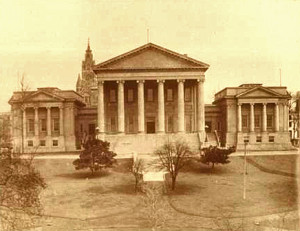Not since the ‘50s have citizens hunkered after an underground nuclear bunker something like the shelters that the feds have established to protect the governing elite in the event of a nuclear attack.
We have several government shelters nearby – and they are so open a secret that is hardly reassuring for the community’s safety and security.
It’s hard to say, however, who among our neighbors may have a life-saving “private” bunker already.
Atlas Survival Shelters estimates that “[t]here are over 100,000 [nuclear] round corrugated pipe shelters in America” that they have installed.
It’s hard to say who has a shelter because the shelter owners don’t want anyone else to know that they have a shelter – and some citizens make it harder to know by avoiding any building permit.
There is a grave despair that a nuclear attack will occur, and a need to hide, arising even before the traded tirades between our Chief Executive, Mr. Donald Trump, and the Korean President Kim Jong-Un; Mr. Trump threatened to “totally destroy North Korea,” and President Jong-un answered he might just set off a hydrogen bomb over the Pacific.
Many discount these expressions as impulsive. Continue reading




